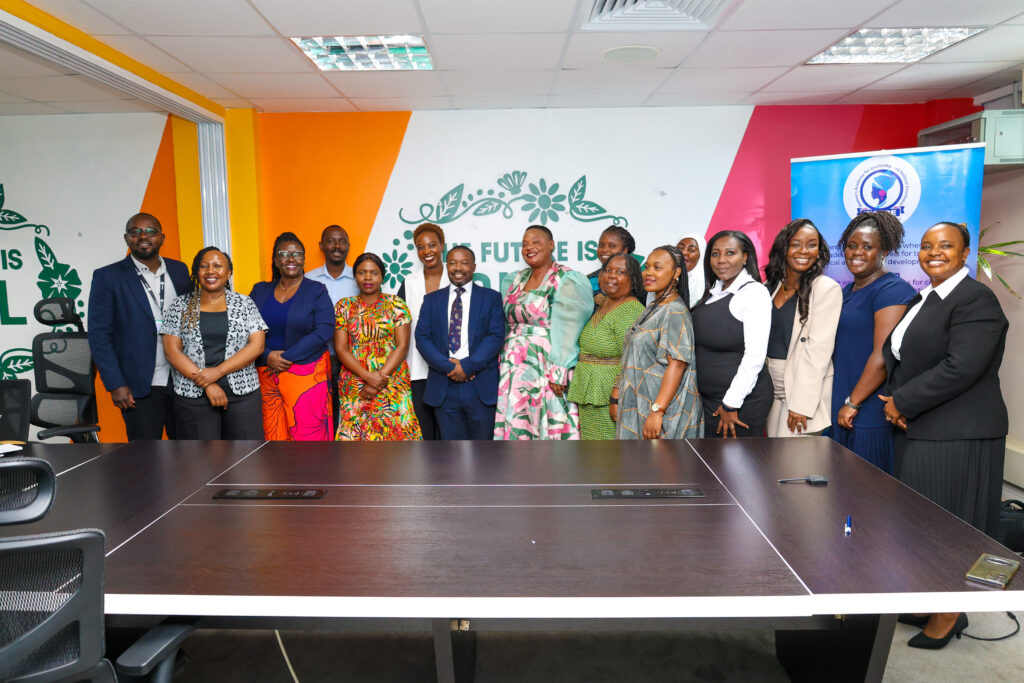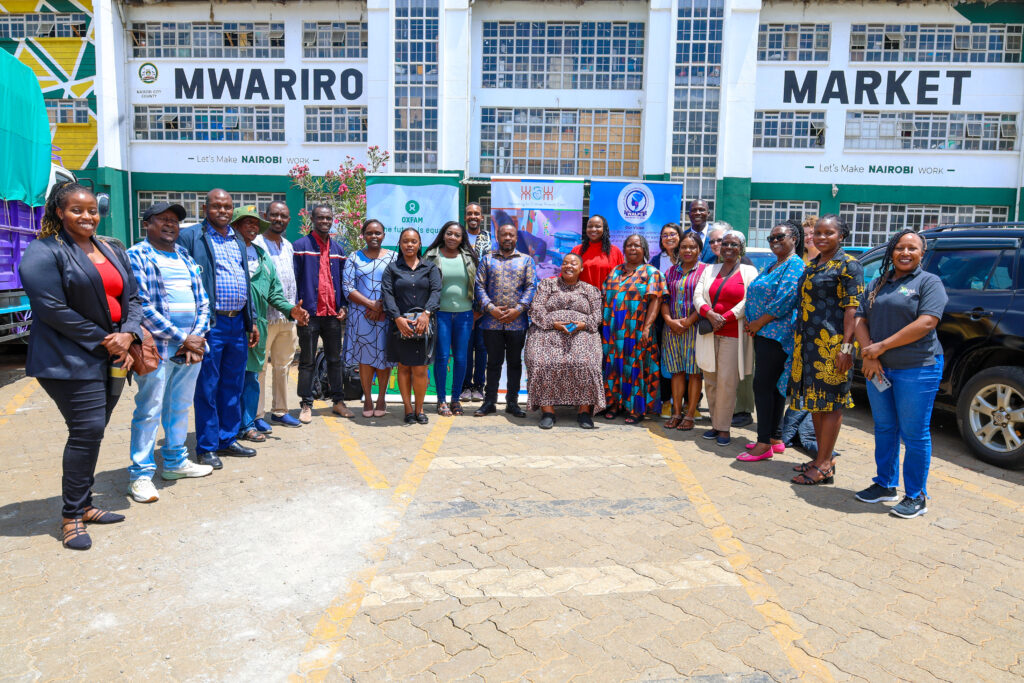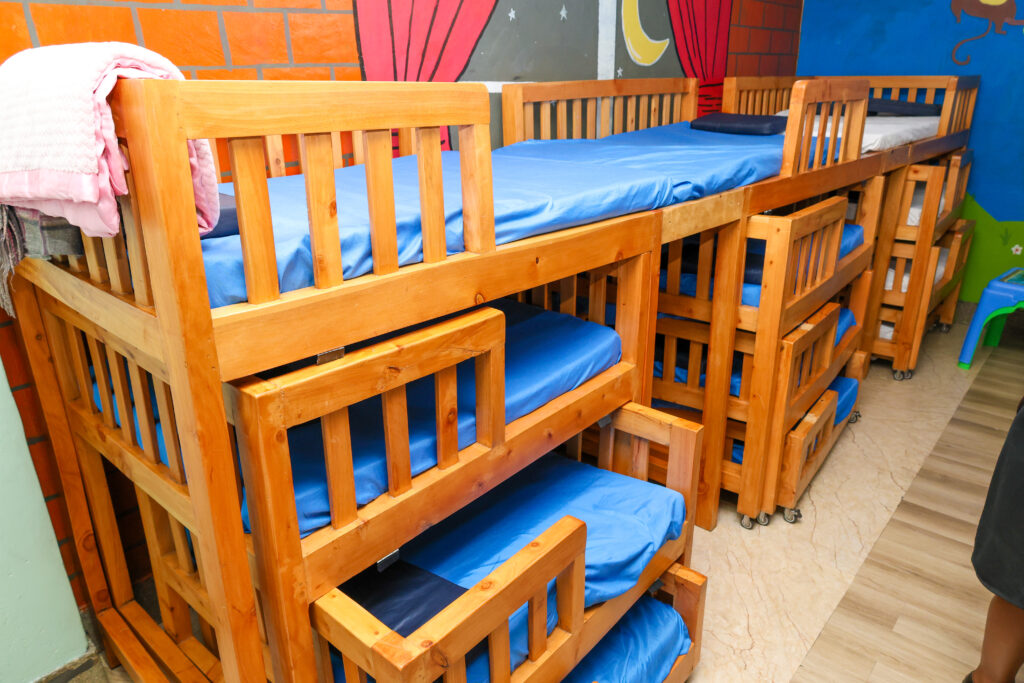Bridging borders for change: Zimbabwe and Kenya’s shared journey in valuing care work
In a significant step towards advancing the recognition and support of unpaid care and domestic work (UCDW), a delegation from Zimbabwe embarked on a pivotal learning exchange visit to Kenya from March 11th to 14th. This cross-border collaboration, hosted by Oxfam in Kenya, aimed to facilitate a rich exchange of experiences and strategies in developing and implementing UCDW policies. The insights gained are intended to inform and inspire similar initiatives in Zimbabwe, ultimately improving the lives of countless women and caregivers.
The Zimbabwean delegation comprised key figures, including the Mayor of Harare, a Senator from Harare, representatives from the Ministry of Women Affairs, Community, Small and Medium Enterprises Development, and the WALPE Secretariat (including their Executive Director and Communications Coordinator). They were joined by WE-Care partners from Padare and Bekezela Home-Based Care. From the Kenyan side, Oxfam in Kenya colleagues, WE-Care’s MEAL Specialist, and WE-Care partners Youth Alive! Kenya and AWAK actively participated in the exchange.
The primary objective of this mission was for the Zimbabwean delegation to gain first-hand knowledge of Kenya’s progress in developing UCDW policies, with the aim of contextualizing and replicating these successes in Zimbabwe. Equally important was the opportunity to observe care policies in practice, understand their development processes, identify challenges encountered, and explore opportunities for scaling and replication.
Day 1: High-level engagements and policy insights
The visit commenced with a courtesy call to the Oxfam in Kenya offices, where the delegation met with Country Director Henry Isura. Mr. Isura underscored the critical role of UCDW in economic development and commended the Kenyan team for their advocacy efforts, which have led to regional recognition of their advancements.

The team later had the privilege of meeting Oxfam International Executive Director, Amitab Behar, and Oxfam in Africa Director, Fati Nzi Hassane. Both leaders expressed their unwavering commitment to advancing gender justice and rights within the confederation, eagerly anticipating further cross-regional learning between countries.
The day’s agenda continued with a meeting with the Kenyan government spokesperson, Honorable Isaac Mwaura. He emphasized the imperative of inclusivity across organizations and applauded the growing collaboration between Kenya and Zimbabwe, extending beyond the NGO sphere to political alliances.
A particularly illuminating session followed with members of the National Assembly, notably Honorable Sabina Chege, who has championed a breastfeeding bill in Parliament. The proposed bill, designed to ensure the dignity of breastfeeding mothers, stipulates that any establishment accommodating more than 20 people must provide a comfortable, clean room, separate from restrooms, for breastfeeding or expressing milk. This dedicated space should include a fridge for milk storage, a soft padded surface for baby changing, and a dispenser for essential mother and baby products.
Honorable Chege shared her journey with the bill, which has been tabled twice during her two terms as Women Representative for Murang’a County (2012-2022) but previously stalled at the Senate level. Learning from past challenges, she strategically moved the bill’s sponsorship from the Ministry of Health, which is a devolved function, to the Ministry of Social Protection. This tactical shift aims to ensure that the bill only requires approval at the National Assembly level, thereby bypassing potential pushback from the Senate. The bill is currently headed for its second reading after incorporating feedback from various stakeholders. Once it passes the second reading, it will undergo further refinement before being presented for Presidential assent to become law. Honorable Chege candidly shared her lessons learned, offering invaluable insights to the delegation on how to streamline the process when it comes time to replicate such legislation in Zimbabwe.
Day 2: Community impact and policy discussions
The second day began with a benchmarking session at Mwariro Market, where the team visited WOW Moms Kenya, a social enterprise dedicated to advocating for child-friendly spaces by highlighting policies and plans that negatively affect children. WOW Moms currently operates childcare centers in market areas across Kenya, and the delegation gained valuable insights into their business model, structure, and facilities. Their key focus areas include:
- Water, sanitation, and hygiene: Championing the provision of baby changing facilities in public spaces, designing child-friendly toilets, and promoting proper handwashing practices among children and their caregivers.
- Nutrition: Partnering with nutritionists and lactation experts to educate parents on appropriate feeding practices.
- Child-friendly cities: Working towards creating urban environments where children can grow, learn, and thrive.
- Child safety: Equipping caregivers with the knowledge, skills, and confidence to ensure child safety at home.

Later in the day, the team participated in a roundtable discussion with Kenyan Civil Society Organizations (CSOs) on childcare policies in Kenya. Representatives from the Kenya Women Parliamentarian Association (KEWOPA) provided an overview of the crucial role women parliamentarians play in care advocacy. Members from the Mombasa County Assembly presented on the strides made by their women’s caucus in tabling motions to the county government concerning UCDW. Presentations were made on existing childcare policies and the progress achieved in Kenya to date.

Discussions during the afternoon session raised several pertinent concerns from the Zimbabwean delegation:
- Role of private entities: What is the role of private entities and businesses in supporting the implementation of these policies?
- Inclusive language: The phrasing of childcare centers as “safe spaces for mothers to leave their children” could potentially alienate other caregivers, such as fathers, grandparents, and siblings. A suggestion was put forth to rename the phrase to “safe spaces for caregivers to leave their children.” This was in response to the presentation by Mombasa County MCAs on their motion to pass a bill on UCDW. The MCAs clarified that inclusivity would be prioritized during implementation, though the phrasing in the motion documents would remain as is, a strategic move to rally emotional support from the county government by focusing on mothers. This strategy in policy development was also discussed.
Day 3: Honoring love, life, and labor
While the majority of the Zimbabwean delegation departed for home, the WE-Care partners remained in Kenya to participate in a Valentine’s Day activity organized by Youth Alive Kenya, themed “Honoring Love, Life, and Labor.” This event served as a fitting culmination to the week, beautifully showcasing the recognition and reward of care work.
Day 4: Key takeaways and future directions
The final day offered a concise overview of the week’s insights, with key highlights from the team emphasizing:
- The lengthy process of advocacy: Advocacy for UCDW is a protracted process. It requires persistent effort and the support of key individuals to ensure that the importance of the advocacy is widely understood, otherwise, efforts may seem futile.
- Devolution and local policy initiatives: A planned visit to the Council of Governors (CoG) on Day 1 was unfortunately delayed due to the Kenyan Parliament’s resumption. This visit was intended to focus on the process of devolution and how different levels of government could initiate policies to improve citizens’ lives without necessarily waiting for national laws to be passed. This remains an important conversation for future follow-up.
- Broadening the scope of UCDW: Matters of UCDW are not solely “women’s issues,” and associating them as such can be a significant setback. Honorable Sabina Chege advised that when passing bills on UCDW, they should be aligned with areas that affect the entire population. Her decision to shift her breastfeeding bill from the health to the social protection sector was influenced not only by the bicameral system of government but also by the need to highlight UCDW as a social protection issue. Solving the breastfeeding challenge, she argued, ultimately manages and overcomes a situation that adversely affects the well-being of the entire population, not just women.
- Importance of private sector engagement: Government budgets can be restrictive, making private sector engagement crucial for policy implementation. Other stakeholders in these spaces can significantly aid in the implementation of policies that are likely to boost their businesses in the long run.
This learning exchange underscored the power of collaborative learning and the shared commitment between Kenya and Zimbabwe to champion the cause of unpaid care and domestic work, paving the way for more equitable and supportive societies.
Photo 1 shows the delegation at the Oxfam offices in Nairobi for a courtesy visit to the Oxfam in Kenya Country Director, Henry Isura; photo 2 shows the delegation at Mwariro Market; and photo 3 shows the sleeping area at the childcare facility in the market. Photos by Fredrick Otieno Okoth/OiK
